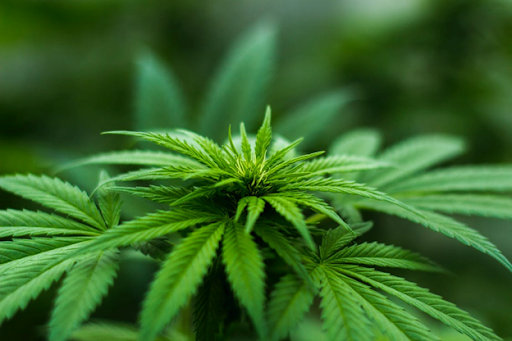The United States of America is among nations with several regulations and legalizations that shape cannabis laws. Despite being a country with a massive population and cultural diversity, it has thriving cannabis markets.
Cannabis is federally illegal in the United States. However, many states have legalized its use either for medical purposes, recreation, or both. As a result, strict guidelines are in place outlining how trade and consumption should take place. At the same time, several scientific studies currently taking place will further help formulate regulations that will guide global and internal markets.
This article focuses on how various states on the East Coast of the United States have taken up marijuana laws.
General Cannabis Laws In The US East Coast
In the US, California is one of the states with progress in cannabis regulation. This has led to a thriving market expected to generate $3.1 billion in 2019. The USA East Coast is a region with up to 15 states, including Massachusetts, Rhode Island, New York, Pennsylvania, Maryland, South Carolina, Florida, Georgia, New Jersey, Maine, New Hampshire, Delaware, North Carolina, New Hampshire, and Connecticut.
The laws guiding cannabis use, sale, growth, and distribution in these states vary considerably. Nonetheless, they all respond to key areas such as user’s age, amounts for individual possession, growth, sale, and legal penalties.
Marijuana Cultivation
States such as Massachusetts allow an individual to grow up to six plants for one person and up to 12 plants for two or more adults. This varies only slightly in Maine, where adults over 21 years can legally grow up to 3 flowering marijuana plants. However, the condition is that each plant is grown at the individual’s home residence and is out of public view or reach for persons under 21 years of age.
New Jersey is among states on the East Coast where marijuana is outlawed, and even possession of small amounts for personal use is a crime. The use of medical marijuana in New Jersey is acceptable under limited circumstances.
In Connecticut, regulations outline that marijuana for medical use grows buildings with the same conditions and standards as pharmaceutical factories. Patients who wish to use marijuana have to register with the state. There are 11 medical conditions for which you can use medical marijuana in Connecticut, including cancer and HIV/AIDS.
Possession
The amount of marijuana an individual can possess is another important aspect of regulation. The physical status of the product (liquid, dry, seed, or fresh) may determine just how much cannabis you can possess in a particular state. In Maine, the limit for adult possession is up to 2.5 ounces (about 70 grams) and a similar amount for marijuana plus a marijuana concentrate.
The state of Rhode Island has legalized medical marijuana since 2006, and there are several medical dispensaries across the state. However, possession of marijuana exceeding one ounce (about 25-30 grams) attracts prosecution as a misdemeanor charge. A first-time offender may incur a jail term, a criminal record or conviction, or a fine between $200 – $500.
Sale and Distribution
The laws regarding the selling and distribution of cannabis relate to form, amount, and place. Like other regulatory frameworks, they differ significantly among the states on the East Coast. In the recent law decriminalizing marijuana in Delaware, only 15 CBD gummies retailers have licenses to sell the produce. According to this law, additional permits are subject to increased demand.
Although the Delaware law prohibits home cultivation, 50 cultivation sites and 30 product manufacturers are set to receive licenses, with a raft of factors considered before this legalization. People intending to go into this business would pay a $5,000 application fee and a biennial renewal fee of $10,000.
In Georgia, some government institutions have permission to grow marijuana. However, only six private companies have licenses to grow cannabis and produce medical cannabis oil. Of the six, two can grow up to 100,000 square feet of cannabis space, while the other four have a 50,000 square feet limit. The total area under cannabis cultivation in Georgia would be approximately 9 acres. For distribution, pharmacies licensed by the State Board of Pharmacy could sell low-THC oil. At the same time, the Georgia Access to Medical Cannabis Commission undertakes approval of private dispensaries for the sale of low-THC oil.
Penalties
There is also a difference in punishment attracted by violating marijuana laws in various states on the USA East Coast. Most states vary the age of marijuana users to be above 18 years or above 21.years. At 18 years of age, most states consider an individual an adult who can make independent decisions and choices in life.
In Florida, medical marijuana has been legal since 2016. In the meantime, there are several bills currently undergoing legal processes to determine precisely how the cannabis market functions. Current laws allow for fines of up to $200 000 and up to 30 years in prison for possession of marijuana. Recreation cannabis is also illegal in Pennsylvania as well as in South Carolina.
In New York, it is illegal to have cannabis that contains more than 0.3% THC. THC is the chemical known to bring about psychoactive properties in marijuana. In Maryland, adults can possess marijuana not exceeding 10 grams.
Conclusion
The changes affecting the cannabis market are happening across the globe. This presents policymakers and other stakeholders with an opportunity to enhance the market. This is through putting in place a supporting framework that allows the industry to grow specific areas that cannabis regulation has to look at, including international trade and transportation, quantity, quality, and so on.
The diversity in regulations across states in the USA East Coast demonstrates a need for a harmonized approach to cannabis. This could mainly be helpful, considering that several scientific studies have confirmed that cannabis has beneficial properties to human health.





